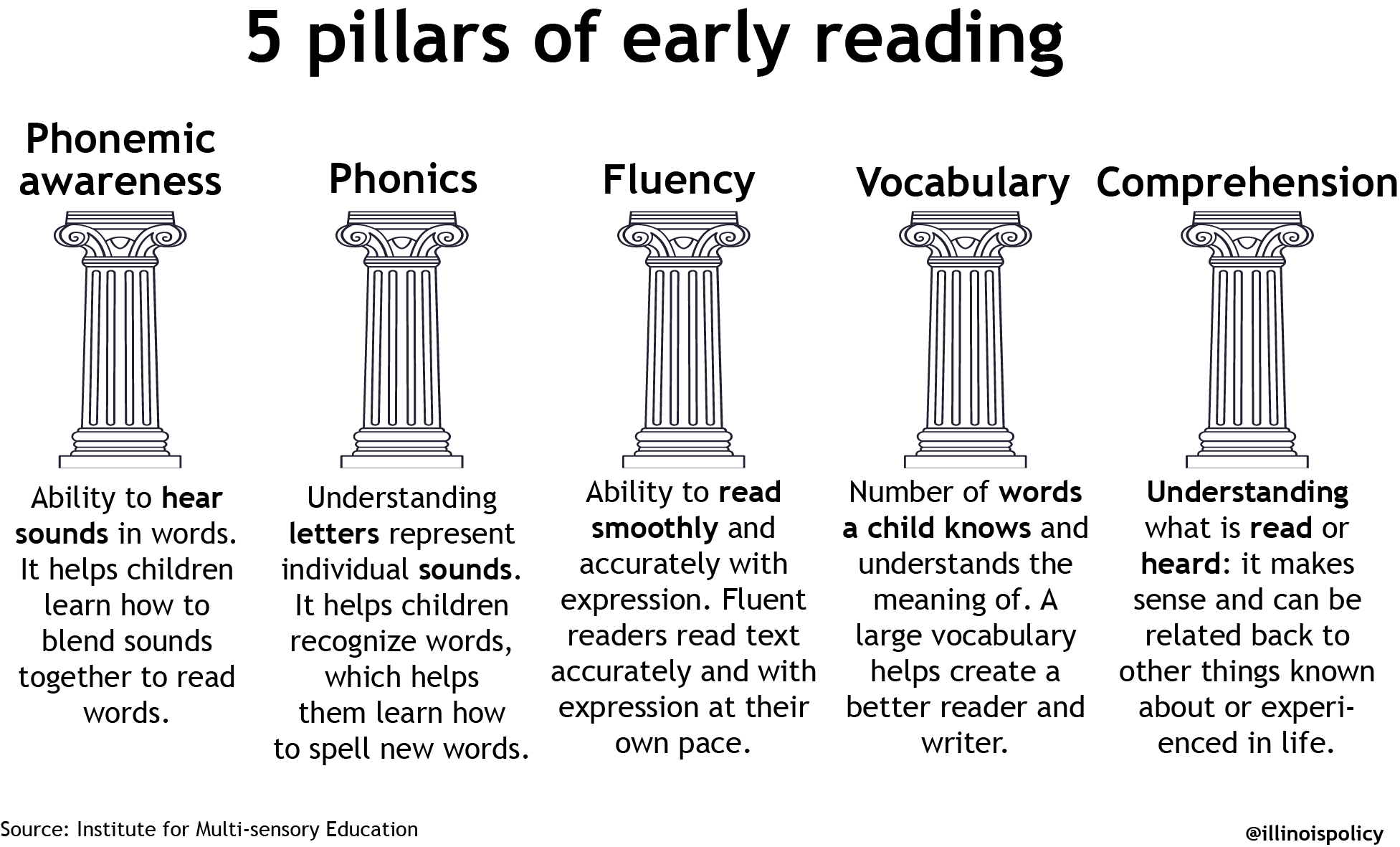Only 31% of third-grade students can read at grade level; reforms could improve that
PRESS RELEASE from the
ILLINOIS POLICY INSTITUTE
CONTACT: Micky Horstman (312) 607-4977
5 steps to help Illinois students learn to read
Only 31% of third-grade students can read at grade level; reforms could improve that
CHICAGO (Jan. 8, 2025) – Knowing how to read is vital in the early years of students’ educations because reading skills let them learn other subjects, too, but few Illinois students meet reading proficiency standards by a critical milestone.
According to the Illinois Policy Institute, just 31% of Illinois third-grade students read at grade level on state assessments in 2024. That remains below 2019 pre-pandemic levels, when 36% of Illinois third graders met proficiency standards.
“The first years of school are critical for building a firm foundation of literacy skills. Students transition from ‘learning to read’ to ‘reading to learn’ after third grade,” said Hannah Schmid, policy analyst at the Illinois Policy Institute. “Illinois’ literacy crisis threatens the futures of our children. It’s crucial we equip as many elementary students as possible with the skills to read – or else students risk not understanding their curriculum and even dropping out.”
Since 2013, 40 states and Washington, D.C., have enacted legislation calling on their schools to use evidence-based methods to teach students how to read. While Illinois amended the school code in 2023 to initiative a literacy plan, lawmakers did not mandate any implementation efforts. Institute experts say Illinois’ political and school leaders should promote five literacy solutions proven to bolster outcomes in states such as Florida, Mississippi and Colorado.
The Illinois Policy Institute’s 5 literacy solutions:
- Provide an early universal reading screening for every student in first through third grades to identify reading deficiencies. Early identification of struggling students will help schools provide the support necessary to help students catch up to their grade level requirements by year’s end.
- Provide reading interventions for any student in first through third grades with a reading deficiency to quickly remediate their issues. Research shows the harms when students do not read proficiently in early grades and continue to fall farther and farther behind in school.
- Notify parents and keep them engaged in their student’s reading deficiency diagnosis and intervention. It is important for parents to be engaged in their student’s reading remediation because studies have shown students do better academically with parents involved.
- Ensure schools use science-based instruction methods to teach reading. Instruction should focus on the five foundational components of reading: phonemic awareness, phonics, vocabulary development, fluency and comprehension.
- Discuss and determine grade promotion decisions with parents and teachers for students whose reading deficiencies are not remedied by the end of the school year. The decision to promote or retain a struggling student, particularly in the transition from third to fourth grade, should be taken more seriously by Illinois schools to ensure grade level reading proficiency in lower elementary grades.
 “This crisis can be fixed, especially when using protocols and reforms embraced by other states,” Schmid said. “Every Illinois student deserves to develop the skills to succeed in school and then life. Leaders should encourage and adopt these critical steps as soon as possible.”
“This crisis can be fixed, especially when using protocols and reforms embraced by other states,” Schmid said. “Every Illinois student deserves to develop the skills to succeed in school and then life. Leaders should encourage and adopt these critical steps as soon as possible.”
To learn more about how Illinois schools are performing, visit illin.is/5readingfixes.
For interviews or interviews, contact media@illinoispolicy.org or (312) 607-4977.